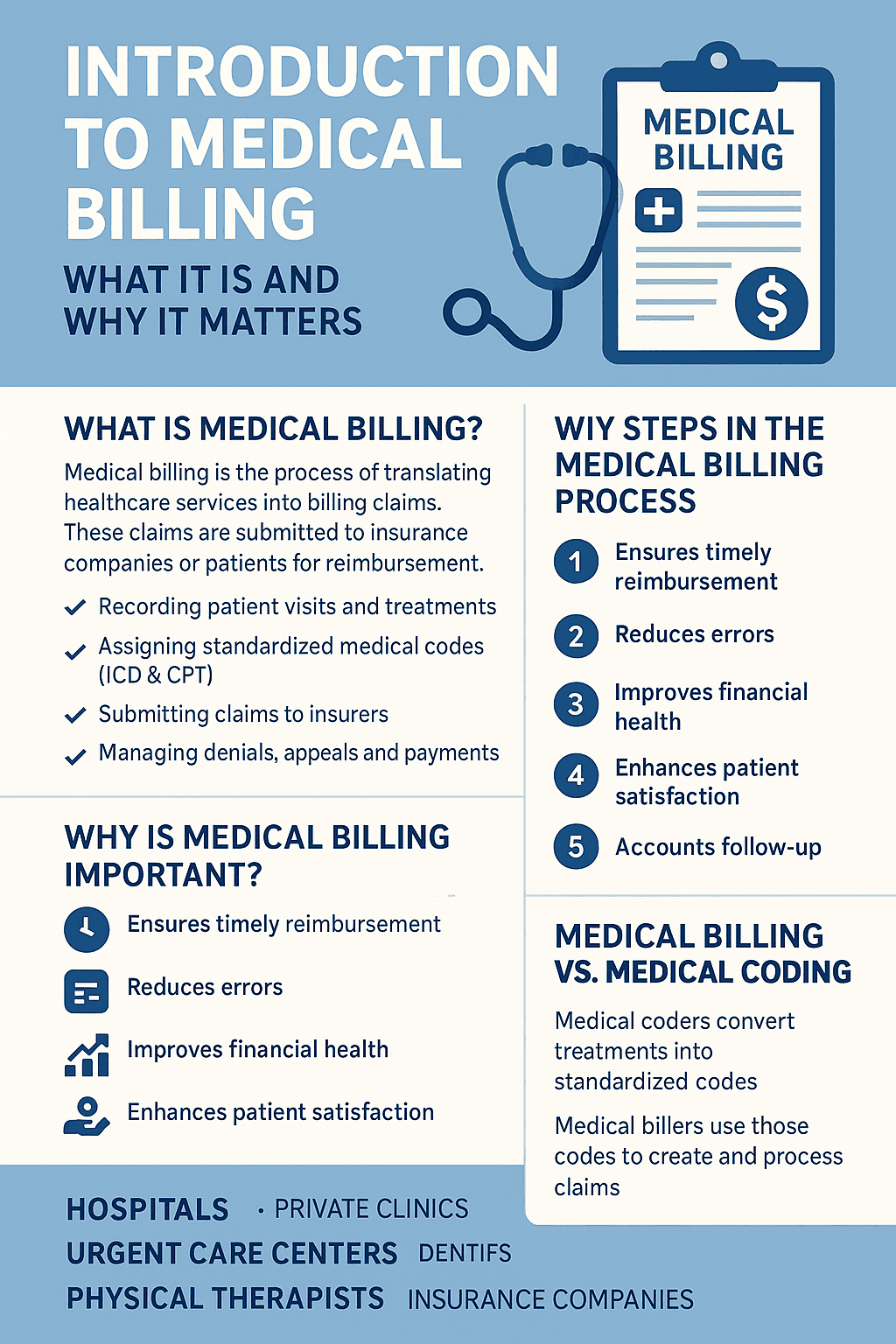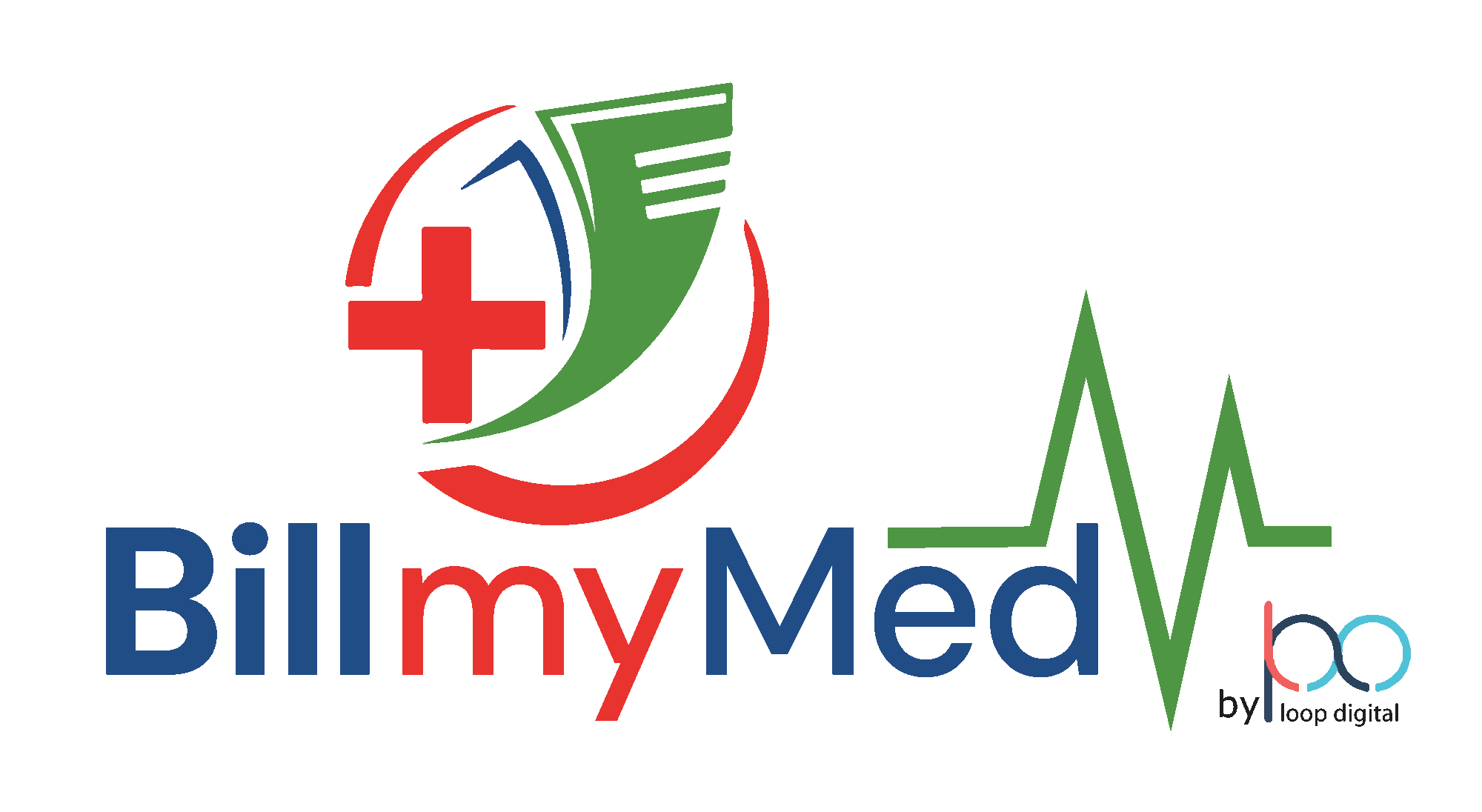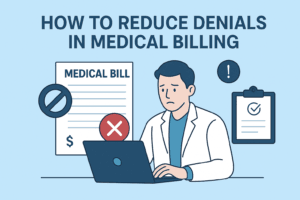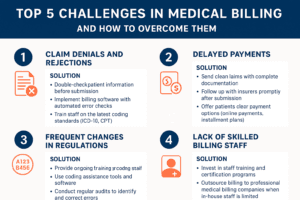Introduction to Medical Billing: What It Is and Why It Matters

Introduction to Medical Billing: What It Is and Why It Matters
In the complex world of healthcare, medical billing plays a vital behind-the-scenes role. While doctors and nurses focus on patient care, medical billers ensure the financial aspect runs smoothly—helping healthcare providers get paid for their services and patients understand their medical costs. If you’ve ever received a medical bill or insurance claim, you’ve been part of the medical billing process.
What is Medical Billing?
Medical billing is the process of translating healthcare services into billing claims. These claims are submitted to insurance companies or patients for reimbursement. It involves:
Recording patient visits and treatments
Assigning standardized medical codes (ICD & CPT)
Submitting claims to insurers
Managing denials, appeals, and payments
Key Steps in the Medical Billing Process:
Patient Registration: Collecting patient and insurance details.
Medical Coding: Translating diagnoses and procedures into standardized codes.
Charge Entry: Entering the cost of services rendered.
Claim Submission: Sending the bill to insurance companies.
Payment Processing: Receiving payments from insurance or patients.
Accounts Follow-Up: Handling unpaid or denied claims.
Why is Medical Billing Important?
Ensures Timely Reimbursement: Accurate billing helps healthcare providers receive payments faster.
Reduces Errors: Professional billing reduces claim denials and delays.
Improves Financial Health: Efficient billing boosts revenue for clinics and hospitals.
Enhances Patient Satisfaction: Clear, accurate bills increase patient trust and reduce confusion.
Medical Billing vs. Medical Coding
While the two often work hand-in-hand:
Medical coders convert treatments into standardized codes.
Medical billers use those codes to create and process claims.
Who Uses Medical Billing?
Hospitals
Private Clinics
Urgent Care Centers
Dentists
Physical Therapists
Insurance Companies
Is Medical Billing a Good Career?
Yes! With the growing need for healthcare services, skilled medical billers and coders are in demand. Many positions offer remote work flexibility, competitive pay, and career growth opportunities.
Final Thoughts:
Medical billing might happen behind the scenes, but it’s a cornerstone of modern healthcare. Whether you’re a patient trying to understand your bills, a healthcare provider optimizing operations, or someone exploring a career in the field—understanding the basics of medical billing is essential.







